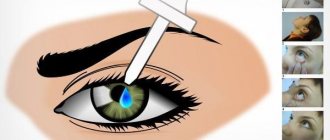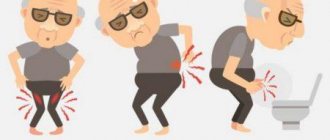Memory loss is a disease that is considered one of the most mysterious phenomena of our time. The reasons for its origin are not fully understood. Many people are interested in the question: “memory loss, what is the name of the disease?” The disease is called amnesia. It consists in the loss of memories of certain circumstances, the inability to recreate certain life events. More often, an individual’s memories of situations that happened recently, especially important ones, are erased. It often happens that an individual is unable to display the complete picture of what happened; in other words, his memories are partial. With the absolute loss of memories, the subject cannot remember people close to him, forgets his own biographical data, as well as everything that happened before. Amnesia can occur unexpectedly, for example, it is often observed during alcohol intoxication. In addition, the disease in question can develop gradually, often being temporary.
Types of memory
Memory is one of the most important properties of the central nervous system, generalizing a complex of cognitive activity and HMF (higher mental functions) aimed at the accumulation, preservation and further reproduction of various skills, knowledge and abilities.
Memory allows you to accumulate information about any events in the environment and the body's reactions to these events. Also, thanks to memory, it is possible to reproduce and change this information multiple times.
The main types of memory are divided according to the following criteria depending on:
- from the sensory modality, memory is distinguished: visual (visual), motor (kinesthetic), sound (auditory), gustatory, olfactory, pain, eidic (long-term memorization of sensory information, based mainly on visual images, also eidic images can be supplemented by auditory, gustatory and other components).
- memory is separated from the content:
- figurative (connection of various images with previously occurring events, previously seen objects, formation of a way of thinking, figurative reproduction of what was previously seen);
- motor (memorization of motor automatisms, acquired skills, formation of automatic fine motor skills);
- emotional (memorizing emotions, reactions to events, people, connection of place, sound, smell, taste with emotions);
- social (memorizing the principle of social connections, the distinctive features of different people);
- topographical (memorizing the topography of the area, home, walking and tourist routes).
- from relation to time:
- prospective memory (remembering events planned for the future);
- retrospective memory (remembering previously occurring events).
- Depending on the duration of storage, memory is distinguished: ultra-short-term, short-term, long-term.
Features of temporary types of memory
Ultrashort memory, in turn, is divided into iconic (for visual perception) and echonic (for auditory perception). Ultrashort memory allows you to quickly process information coming from auditory and visual analyzers, and then quickly transforms into short memory.
For reference. Short-term memory allows you to remember a limited amount of information for up to 30 seconds. However, during subsequent analysis, the brain can extract additional information from this memory.
Short-term memory allows you to process mental processes, extract important information from sensory types of memory, evaluate the environment and perceive the world holistically.
Long-term memory belongs to the subconscious and allows you to store an unlimited amount of information. Long-term memory includes active information (used every day), passive (rarely used) and latent (used as a source of additional information).
Stress
Stress is a major memory destroyer, although it affects concentration rather than memory. According to Douglas Scharre, director of cognitive neuroscience at The Ohio State University Wexner Medical Center, when a person is stressed, the mind is constantly distracted by extraneous concerns and thoughts without focusing on the subject at hand. As a result, it seems that you have a bad memory, although in fact the problem is in attentiveness. If you constantly live under stress, it can turn into a habit and even an addiction. To combat forgetfulness, try to find your own ways to quickly calm down and concentrate.
Types of memory problems
Memory problems are divided into:
- amnesia (memory loss);
- hypomnesia (memory impairment);
- hypermnesia (rarely encountered abnormal memory exacerbation);
- paramnesia (distortion of memories, as well as mixing fantasies and reality).
Amnesia is most often temporary, with memory recovery occurring in chronological order.
Based on the type of memory loss, amnesia is divided into:
- dissociative - accompanied by loss of memories of traumatic events;
- retrograde - loss of memories of what happened shortly before the skull injury, stroke;
- anterograde - loss of memories of what happened after an injury or illness;
- fixation - the patient loses the ability to remember and reproduce current events that coincide in time with the injury or illness.
Memory impairments can also affect certain mnemonic operations. For example, when associative memory is impaired, the patient experiences problems making connections based on the similarity of objects or events.
For reference. Mnemonic processes are a set of mnemonic operations that provide the mechanisms of memory as a system: memorization, reproduction, preservation, forgetting of learned information.
If the ability to systematize is impaired, problems arise with establishing connections between actions or events. Violation of structuring leads to a loss of the ability to connect memories into a single picture.
Multitasking
The trend for multitasking is gradually fading away; the fact that this mode of work has a bad effect on productivity has been confirmed by more than one study.
Despite what people say on their resumes, very few of us can actually multitask effectively. A study published in Psychonomic Bulletin & Review tested 200 participants in a high-fidelity driving simulator, and only 2.5% were able to perform well on the tasks.
Multitasking is bad for memory for several reasons. The most obvious is that you cannot concentrate properly on a certain subject, and this is important for memorization. In addition, in this mode, a person constantly experiences stress, which also impairs memory. Finally, constant distractions prevent the brain from forming new memories.
Causes of memory problems
The main causes of memory impairment include:
- age-related memory impairment;
- dementia;
- cerebrovascular accidents;
- depression;
- lack of sleep, chronic fatigue, stress and prolonged overwork;
- alcoholism;
- Alzheimer's disease;
- moderate cognitive impairment (pre-dementia);
- multiple sclerosis.
Rare causes of memory impairment include normal pressure hydrocephalus, subdural hematomas, hypothyroidism, vitamin B12 deficiency, and HIV infection.
Classification
Failures can be:
- regressive - temporary, which are subsequently restored;
- progressive - long-term, ending in deep amnesia;
- stationary, strong - without the possibility of recovery;
- fixation - affect only those events that just happened;
- pseudo-reminiscence - replacing forgotten memories with unreal, invented ones.
If the failures are short-term, small (loss of memories in a short period of time), with timely treatment the prognosis is favorable. If they cover a fairly long period, it sometimes takes years to restore information, and this is not guaranteed.
Why does a person lose memory?
The most common age-related memory impairments are caused by the aging of the body. As many people age, it becomes more difficult for them to remember new information, and their ability to learn and master new skills decreases.
Age-related memory problems lead to slower thinking and forgetfulness. It takes a person more time to remember the necessary information.
For reference. However, mental abilities are not affected (this distinguishes age-related memory problems from memory decline due to dementia, cerebrovascular accidents, or Alzheimer's disease).
Memory problems - what is the name of the disease?
Common causes of memory problems in old age are:
- moderate cognitive impairment;
- senile dementia;
- Alzheimer's disease;
Memory problems associated with mild cognitive impairment are accompanied by impaired short-term memory.
For reference. Problems with short-term memory mean that patients have difficulty remembering the content of a recent conversation, where they put their keys, what they ate for breakfast, and they forget about appointments.
At the same time, working memory is not affected. Patients can perform simple calculations and remember and reproduce short lists of items.
It should be noted that moderate cognitive disorders are considered to be the initial manifestations of damage to the cerebral cortex (most often against the background of chronic cerebrovascular accident). In the absence of timely treatment, mild cognitive impairment transforms into dementia.
For dementia
If a person is diagnosed with dementia, then in addition to memory problems, severe cognitive impairment and behavioral disorders are observed. Mental abilities are also affected.
In addition to persistent forgetfulness, patients experience significant difficulty naming familiar objects and organizing and planning their daily activities. Executive functioning is also impaired (a person is unable to pay his bills or prepare food on his own).
Also a common symptom of dementia is a change in personality, the appearance of previously unusual character traits, constant irritability, aggressiveness, anxiety, and moodiness.
In the later stages of dementia, a person may forget family and friends, not understand where he is, and forget his address and name.
For Alzheimer's disease
Memory problems in Alzheimer's disease progress gradually. At the beginning of the disease, the patient himself can realize and notice his problems. As the disease progresses, a person loses the ability to self-critically assess his condition.
For reference. The first manifestation of memory problems is constant forgetfulness. The patient may tell the same story over and over again, repeat an old joke, and forget about his promises and appointments.
This forgetfulness, as the disease progresses, often leads to patients forgetting to turn off the gas, iron, water, and close the doors.
Also, with Alzheimer's disease, the ability to learn new skills is lost (the patient cannot learn to use a new phone or open a new door lock).
As Alzheimer's disease progresses, memory problems become more severe. Patients forget their name, address, names and faces of loved ones, events that happened to them previously.
There is also indifference to others, sloppiness, lack of self-care, loss of interest in one’s own appearance (patients can walk around with unwashed hair for a long time (weeks), in dirty clothes. Gradually, the ability to self-care is completely lost.
For Parkinson's disease
When a person is diagnosed with Parkinson's disease, movement disorders come to the fore. Coordination of movements is impaired, unsteadiness of gait appears, and muscle tone increases. A characteristic symptom is a trembling of the fingers, reminiscent of “counting coins” or “rolling beads.”
For reference. Memory problems, as well as apathy and depressive disorders appear only in the later stages.
Since Parkinson's disease is not characterized by intellectual impairment and severe memory problems, if the patient has these symptoms, the presence of dementia (senile, Alzheimer's) should be suspected.
For multiple sclerosis
Memory problems in multiple sclerosis are combined with:
- decreased intelligence;
- behavior change;
- depressive states;
- tremor and paresis of the limbs;
- violation of superficial and deep sensitivity;
- the appearance of symptoms of dementia;
- cranial nerve palsies (most often the oculomotor, trigeminal, facial and hypoglossal nerves are affected);
- nystagmus (rhythmic horizontal vibrations of the eyeball);
- urinary incontinence;
- erectile dysfunction.
Spastic muscle pain and deterioration in well-being are also often observed after taking a hot bath or against the background of an increase in body temperature.
Symptoms of Memory Loss
This disease is characterized by the inability to remember certain events or people. All symptoms of the disease in question depend on its severity, form, and nature of the pathology. In addition to signs of memory loss, blurred vision, headaches, tinnitus, impaired spatial coordination, increased excitability, confusion and other symptoms may also be observed.
More often, the onset of amnesia occurs after suffering a head injury, often causing a concussion. In a traumatic situation, retrograde amnesia is mainly observed. Her attack can last up to several hours. The individual completely loses the ability to assimilate and perceive information. The patient is spatiotemporally disoriented and appears confused. He has a lack of memories preceding the traumatic experience or illness.
With anterograde memory loss, there is a loss of memories of circumstances after the onset of the disease while maintaining images that preceded the disease or injury. This form of the disease is caused by disturbances that arise during the process of moving information into long-term memory from short-term memory or with the destruction of stored information. Memory may subsequently be restored, but not completely. Gaps related to the post-traumatic period will remain.
With paramnesia, the individual's memory distorts well-known facts and events. You can often see characters in various television series who have completely lost memories of their own past life and themselves. Therefore, many fans of the series are very concerned about the question: “memory loss, what is the name of the disease?” This illness is designated as a flight reaction or is called a state of psychogenic flight. Typically, this condition is caused by severe emotional shock or personal experiences and can last for quite a long time. Often, individuals suffering from this form of memory loss begin a new life in a different place and in a completely different environment.
Among the main symptoms of amnesia are: direct memory lapses, which are characterized by varying durations, difficulty remembering recent events and moments that just happened, and confabulations or false memories.
Memory lapses can be a separate symptom or accompany other mental illnesses.
Transient amnesia is a sudden severe attack of disorientation of consciousness, which is not stored in memory. A characteristic sign of amnesia is the inability to recognize loved ones.
Attacks of transient amnesia can occur once in a lifetime, and sometimes several. Their duration ranges from a couple of minutes to twelve hours. Mostly, symptoms go away without appropriate treatment, but sometimes memories are not restored.
Wernick-Korsakov syndrome occurs as a result of an unbalanced diet or alcohol abuse. This form is accompanied by symptoms such as prolonged memory loss and acute disorientation of consciousness. Other manifestations include blurred vision, unsteadiness of gait, and drowsiness.
In addition to the listed symptoms, amnesia may be accompanied by the following manifestations: dementia, decreased cognitive processes, impaired muscle coordination.
Dementia is characterized by its progressive nature, confusion and incoherence of thoughts.
A decrease in cognitive processes consists of a deterioration in perception, difficulty in learning and performing mental operations. Facing this manifestation is considered a rather traumatic symptom.
Impaired muscle coordination is most often observed in a number of diseases of the spinal cord and brain.
Memory loss and headaches are often accompanied by either a head injury or diseases characterized by the presence of pathological processes in the brain.
Sudden memory loss, often combined with loss of consciousness, is often observed with strokes.
In addition, memory loss is often noted after stress or depression. A number of studies have found that exposure to stress destroys the growth of brain cells. Therefore, the longer the depression continues, the greater the damage will be.
What to do if your memory has suddenly deteriorated
A sharp deterioration in memory can be observed against the background of:
- delirium (acute psychosis due to severe infections, intoxication, drug use or drug withdrawal syndrome);
- traumatic brain injuries;
- strokes (both hemorrhagic and ischemic ).
Attention. In this regard, with a sharp decrease in memory, especially combined with headache , vomiting, loss of consciousness, disorientation in space, paralysis or paresis, you should immediately consult a neurologist.
Treatment
You need to understand that you cannot treat memory loss on your own: the risk of causing even more harm is too great. First you should contact a psychiatrist or neurologist. Once they determine the cause, therapy will be aimed primarily at eliminating it, as well as restoring cognitive and mnemonic functions. For this, the following drugs may be prescribed:
- vitamins: thiamine and cobalamin (most often injected);
- nootropics that improve the nutrition of brain cells: Glycine, Cerebrolysin, Nootropil;
- antiplatelet agents, blood thinners: Aspirin, Curantil, Plavix, Aklotin, Agrostat, ReoPro;
- antidepressants: Zoloft, Prozac, Paxil;
- memantines: Akatinol Memantine, Memantine Canon, Maruxa, Memantal;
- biostimulants: placenta extract, Peloid distillate, Peloidin, Pyrogenal, Peat, Biosed;
- anticholinesterase drugs: Donepezil, Galantamine;
- antioxidants: Epadol, Essentiale, Actovegin, Asparkam.
At the same time, treatment of the underlying disease is prescribed. In addition to drug therapy, the following are carried out:
- physiotherapy;
- hypnosis;
- cognitive behavioral therapy;
- psychoanalysis;
- creative therapy.
To restore lost memories at home, patients are given certain recommendations that should be strictly followed:
- Healthy food;
- take vitamin and mineral complexes;
- adhere to a healthy lifestyle;
- be active, play sports;
- undergo examinations twice a year.
Products that improve cerebral circulation and restore the functions of the hippocampus:
- nuts;
- eggs;
- pumpkin;
- whole grains;
- bran;
- fatty fish, fish oil;
- honey.
Folk remedies include eleutherococcus, ginseng, thyme, and dandelion.
If at a young age the chances of recovering lost memories are quite high, then in the older generation they are minimal.
Diagnostics
If a patient has memory problems, acute delirium and stroke should first be ruled out. It also takes into account whether the patient has had traumatic brain injuries.
For reference. If acute conditions are excluded, an in-depth examination is carried out aimed at assessing the patient’s memory state, the state of his intelligence, the presence of cognitive impairment, depressive states or neuroses.
When examining young patients, it is clarified what their sleep and rest patterns are, and how often they drink alcohol.
Special cards are used to assess the patient's memory.
The patient must quickly examine the card and name the objects depicted on it (the order of memorization does not matter). Normally, you need to remember at least 2/3 of the images.
During the examination, it is important to identify specific signs that are characteristic of different types of dementia. For example:
- parkinsonian tremor and unsteadiness of gait characteristic of Parkinson's disease;
- inability to maintain balance or look up or down with progressive supranuclear palsy;
- choreiform movement disorders due to Huntington's disease;
- impaired fine motor skills and inability to maintain balance due to vitamin B12 deficiency.
For reference. Choreiform movements are involuntary, fast and sweeping, non-rhythmic movements that occur in different parts of the body.
A comprehensive assessment of the patient's mental status is also carried out. His ability to navigate in space and time, the ability to concentrate, the presence of problems with short-term and/or long-term memory, the presence of speech disorders or the ability to understand someone else's speech are assessed.
The patient is also asked to draw a simple picture, name objects in the room, or perform simple tasks.
Prognosis and prevention
Considering the different severity of the primary disease in each patient, as well as the organic and psychogenic causes of hypermnesia, there can be no clear prognosis for recovery.
With minor mental disorders, complete recovery occurs much more often, in contrast to cases of brain damage by tumor formations, hydrocephalus and irreversible degenerative processes in the cerebral cortex.
You can avoid the possibility of hypermnesia whenever possible. For this purpose, taking narcotic drugs, alcohol intoxication, accidental or intentional overdoses of psychotropic drugs is unacceptable.
At the first alarming symptoms of a mental disorder, you should immediately contact a psychotherapist for help. And periodic brain examinations using MRI will help detect the problem as early as possible.
The phenomenon of hypermnesia has nothing to do with brilliant supermemory. Due to the enormous psychological burden, this condition is extremely painful and requires immediate treatment.
How to treat memory problems
Treatment depends on the underlying disease causing memory impairment. For example, if a patient has mild cognitive impairment, donepezil may be used.
For moderate and severe forms of dementia, NMDA antagonist drugs or Memantyl are used.
Donepezil, galantamine, rivastigmine, memantine and others are used in the treatment of Alzheimer's disease.
If memory impairment is associated with depression, a course of antidepressants is selected.
For mild memory loss in young patients associated with fatigue, nootropics and mildronate may be prescribed.
Memory loss after alcohol
It is believed that even at the first stage of alcohol dependence, amnesia may occur. Sudden amnesia due to excessive alcoholic libation becomes stressful for the individual. However, not everyone experiences memory loss after drinking alcoholic liquids. For temporary amnesia to occur, it is necessary to “comply” with the following conditions: the number of drinks consumed, the degree of alcohol, the simultaneous consumption of a variety of alcoholic beverages, drinking alcohol on an empty stomach, the combination of alcoholic beverages with medications.
How severely the connections between brain cells are damaged when drinking alcohol-containing liquids depends on the amount of ethyl alcohol that enters the body. It is believed that small doses of alcohol do not lead to loss of memories. However, the influence of alcoholic drinks on people is quite individual: firstly, the very concept of a small dose is different for different people, and secondly, the gender of the drinker, his age and general health are of great importance.
There is also a pattern: the higher the degree of alcoholic drink, the greater the likelihood that the drinking individual will have memory lapses.
The simultaneous consumption of different drinks containing different alcohols sharply increases the likelihood of amnesia.
Drinking on an empty stomach promotes instant absorption of liquid in the body, as a result of which almost all of the ethanol immediately enters the blood, which leads to rapid intoxication, which has the most destructive effect.
When drinking alcohol while undergoing drug treatment or combining the use of alcohol-containing liquids with drugs or smoking, the likelihood of amnesia increases several times.
Of the three types of memory, alcohol can only affect short-term memory; in other words, an individual’s memories “fall out” of a period of time.
Memory loss during alcohol intoxication occurs after palimpsest. A characteristic sign of the described condition is considered to be minor memory lapses, that is, the subject cannot remember some minor details or episodes of what happened during alcohol intoxication.
Memory loss in young people due to alcoholism occurs due to the occurrence of Wernicke-Korsakoff syndrome. This syndrome is observed when an individual’s body is exposed to prolonged intoxication in the absence of adequate nutrition and a lack of vitamins B and C.
Conclusion
A person can be forgetful at any age. It is important to distinguish between the characteristics of the human brain and the conditions for which treatment is needed. If the problem is simply a poorly developed memory, psychology recommends learning poetry, solving crossword puzzles, and using special memorization techniques.
If parents want to develop their child’s memory, they should learn a quatrain with him every day. Such activities are possible from the age of three. This is not only an excellent tool for improving memory, but also an incentive to develop thinking, speech, and a love of literature.
Consequences
Without treatment and following medical recommendations, memory loss can end very badly. The most common consequences:
- deeper and longer-lasting amnesia;
- disability;
- inability to self-service;
- diffidence;
- maladjustment in society;
- death of brain cells;
- gradual loss of cognitive skills: decreased mental abilities and concentration, impoverished imagination;
- loss of spatial orientation;
- development of psychological complexes;
- decreased quality of life;
- severe mental disorders.










